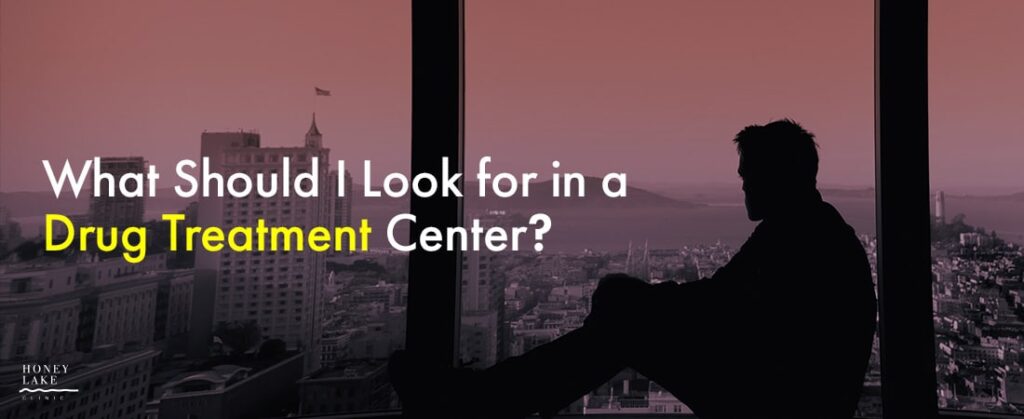What Should I Look for in a Drug Treatment Center?
If you or someone you love needs treatment for substance abuse, where do you start? Who do you call? What do you need to know? What should you look for?
Picking the right treatment center, offering the best programs, environment, and care can be an overwhelming process.
Stopping by this site and reading this post is a great first step. We understand what you’re going through. We can help. Have a confidential conversation with a certified counselor, right now. Please call us at (888) 837-6577.
As you consider treatment options and speak with providers, here are important questions to ask and topics to cover:
Accreditation
Reputable drug rehab centers are accredited by The Joint Commission or the Commission on Accreditation of Rehabilitation Facilities (CARF). Both are independent, nonprofit organizations that base accreditation on industry performance standards and demonstrated results, quality and value. State licensing is not the same as accreditation given the fact that states vary widely in their licensing requirements. Ask about accreditation.
Clinical Staff Credentials and Licenses
Credentials and licenses indicate whether the individuals providing drug rehab programming and services meet nationally recognized standards for professional practice. If clinical staff are not licensed or accredited, they may not have necessary training and experience to provide the most effective care. Ask about those who will be your caregivers. Are they licensed? Credentialed in their fields?
Multidisciplinary Treatment Team
The highest quality inpatient substance abuse treatment programs involve a multidisciplinary care team to address all aspects of your treatment—mind, body and spirit. This means your rehab program should include a team of professionals working together to create an individualized treatment plan that best meets your needs. All team members should be licensed to practice and experienced in their particular discipline. Be wary if one staff member wears many hats. A multidisciplinary treatment team typically consists of:
- Chemical dependency counselor
- Medical doctor
- Nurse
- Psychiatric specialist
- Psychologist
- Nutritionist
- Wellness specialist
- Spiritual care counselor
Use of Evidence-based Practices
The most effective treatment programs rely on evidence-based practices that have been proven through research. Examples of evidence-based practices include Cognitive Behavioral Therapy, Medication-assisted Therapies and other treatment models.
Dual Diagnosis and Mental Health Services
Many people who struggle with substance abuse also have a co-occurring mental health condition such as anxiety or depression. In order to provide the right treatment, an accurate dual diagnosis is needed. For patients with a dual diagnosis, the most promising treatment incorporates care for addiction and the co-occurring mental health disorder at the same time. If an addiction treatment program doesn’t provide mental health services, be sure to ask how these services are coordinated.
Medical Detox & Medication-assisted Therapies
Medical detoxification services allow you to go through medical detox safely on site. The medical staff of a detox unit should include both nurses and physicians who have expertise in easing the discomfort of withdrawal and reducing drug cravings. Ongoing monitoring of your physical health is an important part of your detox and recovery process.
Amenities
This one may sound less important. Don’t misunderstand—amenities in rehab can serve a larger purpose in your recovery and health. What do you or your loved one need to feel more comfortable while working to conquering this addiction? A nature walk? A swim in a pool? A workout in the gym? Specific dietary needs? The list can be lengthy. Think and inquire.
Insurance & Costs
Treatment for substance abuse can be expensive. It’s important to understand what your insurance will cover, and which rehab facilities and treatment options work with your specific insurance plan. How are the costs addressed? Do you pay upfront and apply for reimbursement? Does the facility bill your insurance company directly? What are co-pays? How is your deductible applied?
Life Costs
Beyond the cost of the program and what your insurance plan will cover, there are life costs that need to be figured in—costs associated with missing work, schedule issues, life-routines which may need to be addressed, such as childcare, eldercare, other associated bills, and more.
Your health, or a loved one’s health—it’s just too important to let cost be a deterrent. The dangers of addiction, untreated, will exact far higher costs. You can find a rehab option that will work within your life and budget. Whatever you do, don’t let concern over cost talk you out of getting the help you need.
